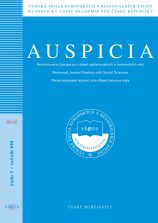Mobilita pracovních sil v evropské unii a v České republice
Labour Force Mobility in The European Union And in The Czech Republic
Author(s): Miroslava VlčkováSubject(s): Labor relations, Migration Studies, EU-Accession / EU-DEvelopment, Globalization
Published by: Vysoká škola evropských a regionálních studií, z. ú.
Keywords: mobility; labour; globalization; labour markets;
Summary/Abstract: The paper deals with labour mobility in the European Union and specifies the number of labour - foreigners who migrate to work in the Czech Republic. The 21st century is the phenomenon of globalization and turbulent environment. In connection with this the international mobility of labour speeds up. There is a release of internal labour markets and the free movement of workers within the European Union. As a result, the share of foreigners in the countries increases. Labour mobility has its advantages but also disadvantages. The benefits can include for example that the migrant labour force is not only labour, but also the consumer, and also that migrant workers often accept jobs, which are refused by local workers of the country. On the other hand, the disadvantage of labour mobility is the outflow of highly-skilled workers. The empirical verifications show that the globalization has a little impact on salaries and employment generally. However, the global labour market has resulted in higher unemployment of less-skilled experts and in a simultaneously increasing income inequality, which is caused by differences in qualifications and skills of workers.
Journal: Auspicia
- Issue Year: 2011
- Issue No: 2
- Page Range: 91-96
- Page Count: 6
- Language: Czech

